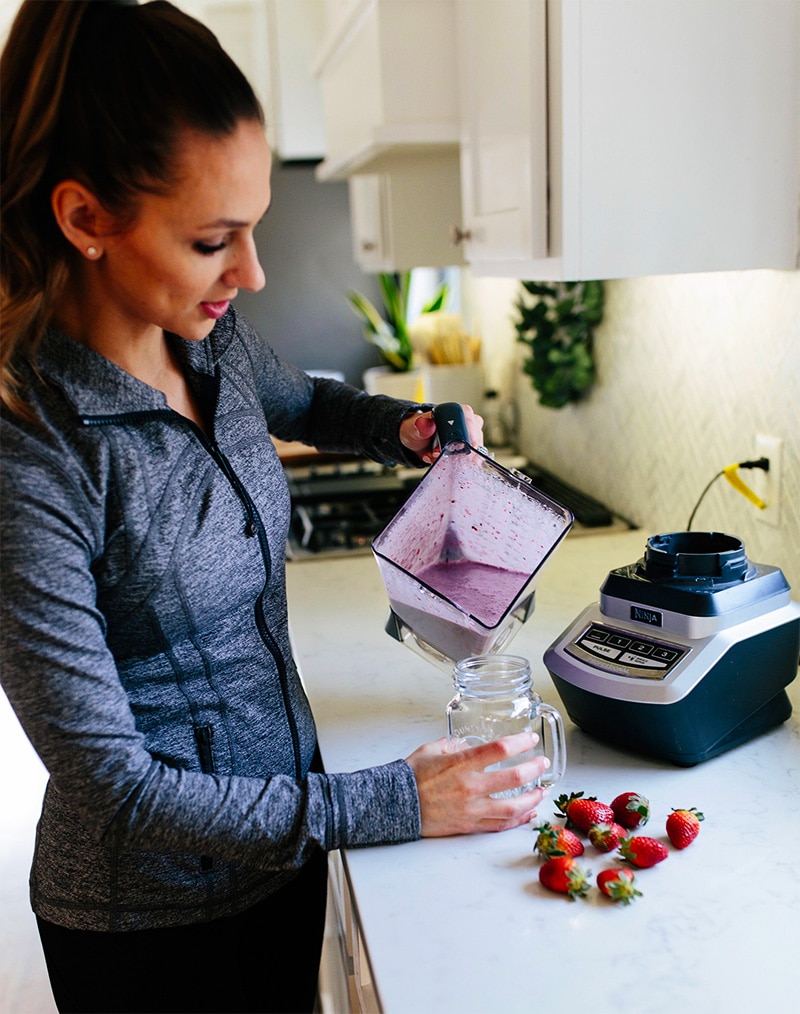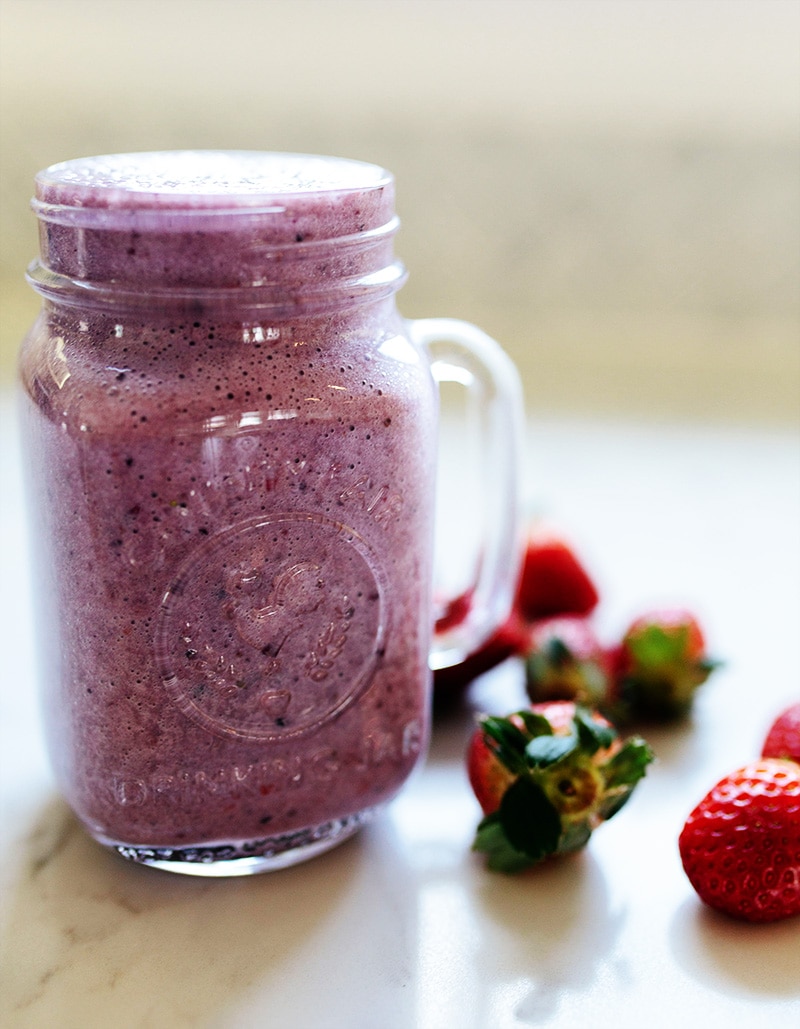Weight Gain Doesn’t Have to be Exhausting
Created by sponsored advisor and friend Angie Asche, MS, RD, LMNT
(biography click here)
“I feel like I’m eating so much all the time, but can’t put weight on.” As a sports dietitian, I hear this on a weekly basis. And for athletes struggling to gain weight, eating can feel like a chore. Athletes should apply the same effort to proper fueling as they do to their training; however, gaining weight doesn’t have to be exhausting! Weight gain occurs when energy intake exceeds energy expenditure. Athletes looking to gain weight typically want to increase lean muscle mass while minimizing body fat gain, or even lose body fat simultaneously. Several factors play a role in this process, such as nutrient timing and consuming high-quality, whole-food sources. To promote weight gain, a starting point for men is baseline calorie intake plus an additional 400-500 calories in excess. For women, an additional 300-400 calories above baseline is recommended; however, this can vary depending on the individual, and may need to be adjusted by 50-100 calorie increments daily until the desired goal weight is reached. To help simplify the process, here are five tips to add to your routine for healthy weight gain!

1. Track Your Intake: It seems like a no-brainer, but to know if you’re really eating enough, you’ll need to actually take a look at the calories in the foods you’re eating. For at least three days, write down everything you eat and drink. I recommend meeting with a sports dietitian to correctly analyze your current nutrition and see where you may be falling short in terms of macro or micronutrients. As a rough estimate, you could use a calorie calculator like this one. This will estimate how many calories you need per day to maintain your current weight, meaning you will need to eat more than that amount to gain. Maybe you feel like you’re eating large amounts, but are you eating fat-free foods such as non-fat yogurt? Low-calorie bread, steamed veggies, plain rice, very lean meat with nothing on it? Making simple swaps to foods you’re already eating helps increase total calories you eat in a day, without feeling like you’re having to add more to your plate. For example, a slice of bread can vary between 45 and 160 calories, depending on the brand. A cup of steamed broccoli is about 30 calories, but drizzling it with even just 1 tablespoon of olive oil increases the calorie count to 150.
2. Snack Wisely: Eating every few hours or snacking between meals is a great way to gain weight. Going 6+ hours without eating during the day just makes it that much harder on yourself to squeeze in enough calories in a short amount of time. But make sure the snacks you are choosing are calorie-dense. For example: ½ cup of Goldfish crackers is 130 calories. A half-cup of almonds is about 400 calories. Not only are the almonds higher in calories, but they’re also providing significantly more protein, fat, and micronutrients. A few other snack ideas include: Homemade protein bars/balls using protein powder, peanut butter, oats, chia seeds, and bananas; whole grain bread or bagel with avocado or nut butter; or a snack plate with hard-boiled eggs, mixed nuts, and fresh fruit.

3. Ease into Larger Portions: Maybe you start by increasing the serving sizes at just one meal, or adding breakfast if you’re not already eating it! Another way to increase the calories or portions without necessarily feeling like you’re increasing the volume of your meal is by adding fat. Just one tablespoon of oil is 120 calories. You could easily add a few tablespoons while cooking your food whether in avocado oil, olive oil, or coconut oil. You could start adding sliced avocado to sandwiches or on top of grilled chicken breasts, or sprinkle sunflower seeds or pumpkin seeds on top of your grains.
4. Plan Ahead: If you are serious about gaining muscle, you need to plan ahead to always have the right foods available and at the right times to optimize muscle growth. Keep snacks in your gym bag, locker, car, etc. to make sure you are always prepared. Write down exactly what you need from the store before getting groceries. Prep your own meals at home so you can measure portion sizes, rather than guessing whether or not the restaurant gave you adequate portion sizes. The reality is if you truly want to gain weight, you’ll make it a priority by planning ahead.
5. Make Smoothies & Shakes: This is truly the best way to get in a ton of calories and nutrition with as little effort as possible. It can be daunting sitting down to a large plate of food after just finishing a large meal a few hours earlier. Smoothies and shakes make eating the same amount of calories so much easier, without making you feel overly full. And if you’re not snacking before bed, you could try drinking one as a late night snack. Adding foods that are high in healthy fats, such as avocado, coconut oil, chia seeds, nut butters, walnuts, full-fat yogurt or whole milk, really help up the calories. Other excellent additions are protein powder, oats, fresh or frozen fruit and vegetables, and anti-inflammatory spices such as turmeric and ginger.

Need help coming up with smoothie ideas? Here are two recipes to try that are both over 1000 calories!

Peanut Butter Chocolate Smoothie:
INGREDIENTS
- 2 cups milk
- ½ an avocado
- ⅓ cup peanut butter
- 2 bananas (frozen works best – otherwise will need to add ice cubes)
- 1 scoop Klean Isolate™ Natural Chocolate Flavor protein powder
- 2 large handfuls spinach
DIRECTIONS
- Place all ingredients in blender. Blend until smooth.
Nutrition: Calories: 1,156; Carbohydrate: 109 grams; Fiber: 19 grams; Protein: 55 grams; Fats: 62 grams; Potassium: 2,623 mg; Vitamin A: 225% Daily Value (DV); Vitamin C: 65% DV; Calcium: 72% DV; Iron: 37% DV.

Berry Greens Smoothie:
INGREDIENTS
- 1½ cups milk
- ½ cup Medjool dates
- 2 scoops Klean Athlete™ Natural Vanilla Flavor protein powder
- 2 bananas, frozen
- 1 large handful kale
- 2 large handfuls spinach
- ½ cup strawberries
- 1 Tbsp coconut oil
DIRECTIONS
- Place all ingredients in blender. Blend until smooth.
Nutrition: Calories: 1,130; Carbohydrate: 163 grams; Fiber: 20 grams; Protein: 62 grams; Fats: 32 grams; Potassium: 2,732 mg; Vitamin A: 482% Daily Value (DV); Vitamin C: 236% DV; Calcium: 77% DV; Iron: 46% DV.

Bio
Angie Asche, MS, RD, LMNT, is a sports dietitian, clinical exercise physiologist, and the owner of Eleat Sports Nutrition®. Angie has a Master’s degree in Nutrition & Physical Performance from Saint Louis University, and a dual Bachelor’s degree in Exercise Science and Dietetics. Since founding her private practice in 2014, she has worked with several high school, collegiate, and professional athletes in the MLB, NFL, and Olympics. Her expertise and recipes have been featured in numerous publications, including Men’s Fitness, Muscle & Fitness, Food Network, Shape, Runner’s World, and NBC News.
Karpinski, C., & Rosenbloom, C. (2017). Sports nutrition: A handbook for professionals.
Chicago: Academy of Nutrition and Dietetics.
